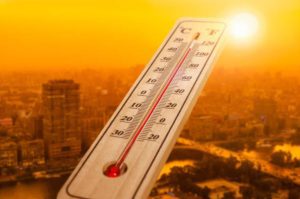West Bengal School Shutdown 2025: With soaring temperatures and a relentless heatwave gripping South Bengal, the state School Education Department has mandated a two‑day closure of all government and aided schools—covering primary through higher secondary levels on 13 and 14 June 2025, excluding hill regions like Darjeeling and Kalimpong. The decision, confirmed by Education Minister Bratya Basu via social media, aims to safeguard the health and well‑being of students amid extreme weather conditions .

West Bengal School Shutdown 2025: Why the Shutdown?
Rising Health Concerns
Schools in districts such as Purulia, Bankura, and East Midnapore reported a surge in student illnesses, including heat-related fevers, dizziness, and vomiting. Reports indicated an increase in visits to school infirmaries, prompting urgent concerns from the West Bengal Board of Primary Education
Heatwave Intensity
The India Meteorological Department confirmed that Gangetic West Bengal—with areas in Kolkata, Howrah, and South 24 Parganas—was enduring temperatures 3–5°C above normal, with South Bengal remaining particularly blistering, while North Bengal reported intermittent monsoon activity
Scope of the Closure
-
Affects all government and government‑aided/sponsored schools: primary, upper primary, secondary, higher secondary—hill regions excluded
-
Private schools are urged to adopt similar measures proactively, though not mandated .
-
Teachers and staff must continue to report for duty unless otherwise directed

Immediate Response: Ministerial and Administrative Action
-
As soon as cases of heat-induced illnesses climbed, the Board of Primary Education sent urgent advisories to district authorities, especially in Malda, requesting health teams at school levels
-
Health officials and district administrations have increased their alertness in affected regions .
-
IMD forecasts light to moderate thunderstorms and rain across South Bengal from 12–14 June, which may aid in lowering temperatures
Broader Context & Historical Perspective
-
Early school closures due to heatwaves have precedence: e.g., April–May 2023 saw similar shutdowns, and summer vacations were advanced in April 2024 scroll.in.
-
Nationally, states like Uttar Pradesh, Rajasthan, Delhi, and Odisha have similarly shifted school calendars or issued advisories in earlier heatwaves .
-
A 2023 analysis by Scroll.in and others highlighted how heatwaves disrupt education—poor infrastructure, lack of ventilated classrooms, and overcrowded rooms worsen the risk
Expert and Policy Perspectives
Education Sector
-
Calling the closure a “necessary relief”, Bratya Basu emphasized student safety.
-
School administrators support the decision amid concerns for children’s health
Health Field
-
Medical teams in Malda and other districts are now on standby to treat heat-induced dehydration and exhaustion
Environmental & Educational Analysts
-
Experts warn of frequent heatwaves due to climate change; school closures are stop-gap measures, not structural solutions.
-
Structural reforms—ventilation, class scheduling, cooler classrooms—are called for to handle extreme weather.
Impact on Stakeholders
Students & Parents
-
Relief relief for vulnerable kids; homeschooling or supervised breaks expected.
-
Parents of working professionals may need adjustments for childcare.
Schools & Educators
-
Disrupted teaching schedules but opportunity for digital catch-up or adjusted lessons.
-
Logistical rethinking needed: preserves academic flow without overcrowding post-shutdown.
Policy & Government
-
Will depend on monsoon rains to relieve heat.
-
May fuel policy initiatives around permanent curricular flexibility—like mid-day shifts or staggered terms.
Looking Ahead: What’s Next?
-
12 June onwards: Expect light/moderate rain in South Bengal, potentially breaking the heatwave
-
15 June onwards: Schools to resume, possibly with updated schedules or heat precautions.
-
Long-term planning: Likely task forces or committees to issue heat preparedness guidelines for the academic year.
Heatwave’s Wider Societal Effects
-
Heatwaves exact toll beyond schools: agriculture, healthcare, labor sectors affected.
-
Urban centers like Kolkata struggle with power, water supply, and vulnerable groups (children, elderly) are hardest hit.
-
Educational disruptions shine light on inequities: poor infrastructure and lack of air conditioning in rural schools intensify risks
Voices from the Field
-
“Several primary students reported nausea and bout of dizziness during classes. The closure is vital,” says a Malda education official .
-
Teachers in South 24 Parganas recount heat-related fainting and rash illnesses among younger children.
-
Parent groups welcome the move, but also voice concerns about future catch-up plans.
Building Future Resilience: Policy Options
-
Reform Academic Calendars
-
Introduce flexible hours, earlier summer breaks in hotter years.
-
-
Upgrade Infrastructure
-
Fans, ventilators, borewells, shaded play areas to cool schools.
-
-
Health Monitoring Systems
-
Regular checkups, first-aid training, hydration breaks institutionalized.
-
-
Heat Action Plans for Schools
-
Coordination with IMD and local health officials for alerts, automatic actions.
-
-
Digital & Hybrid Learning
-
Preparedness for converting lost days into productive e-lessons.
-
Comparative Look: Beyond Bengal
-
Delhi: Introduced early closures, hydration campaigns in 2024
-
UP & Rajasthan: Extended summer vacations statewide in 2023–24
-
Bangladesh 2024: Nationwide closure for millions for heatwave.
These precedents underscore that Bengal’s response aligns with a broader South Asian trend linking education and climate resilience.
Conclusion: Cooling the Classroom, Safeguarding the Future
Over the next two days, coastal relief may ease the immediate crisis. Yet, Bengal’s reactive school shutdown amplifies deeper challenges:
-
Heatwaves, intensified by climate change, are here to stay.
-
Educational systems require structural adaptation, not just emergency orders.
-
Proactive infrastructure, health safeguards, and curricular flexibility must be central to planning.
This week’s shutdown is a short-term solution—what matters now is the long view: ensuring every student can learn safely, no matter how hot the day.
DO FOLLOW:
Also read: Home | Channel 6 Network – Latest News, Breaking Updates: Politics, Business, Tech & More

